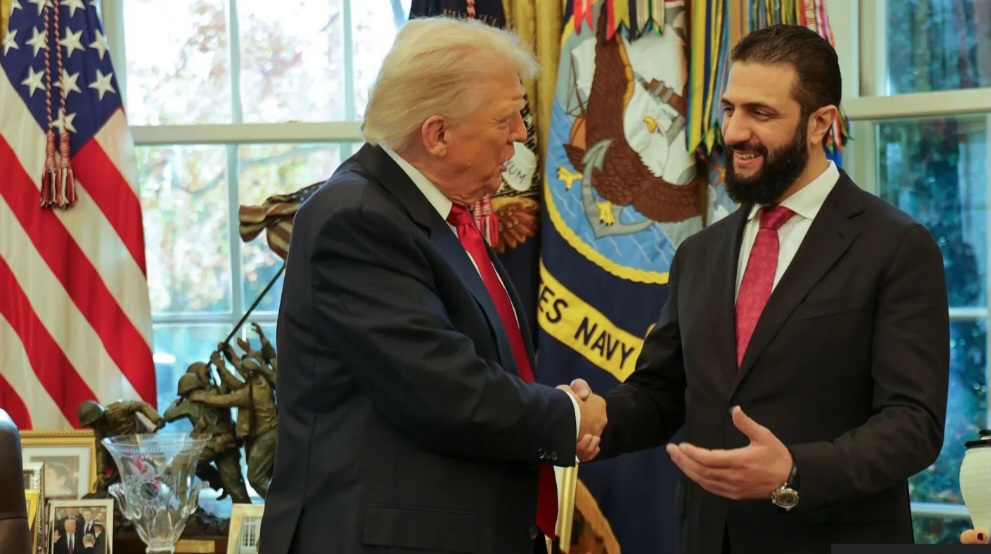
Crystal Dike
Syria has sought partnership of the United States to combat the Islamic State (IS) group, marking a dramatic turn in Washington’s Middle East policy and a historic thaw in relations between the two nations, a senior Trump administration official confirmed on Monday.
The announcement came after President Donald Trump hosted Syrian President Ahmed al-Sharaa at the White House — the first official visit by a Syrian leader in history. The meeting signaled a breakthrough moment as Syria partners with the U.S. to join the global coalition against the Islamic State.
In an interview with Fox News’ Special Report, al-Sharaa called the visit the start of a “new era” of cooperation with Washington. President Trump hailed the development, saying, “We want to see Syria become a country that’s very successful. And I think this leader can do it — I really do.”
Syria becomes the 90th country to join the U.S.-led coalition, which seeks to eradicate remaining IS strongholds and halt the flow of foreign militants into the Middle East.
Following the meeting, a senior official announced that the U.S. Treasury Department, in coordination with the Departments of State and Commerce, will implement new measures to ease economic restrictions on Syria. The plan includes a 180-day suspension of the Caesar Act, a sanctions law enacted in 2019, and clearer compliance guidelines for investors seeking to engage in Syrian reconstruction.
Diplomatic relations between Washington and Damascus — suspended since 2012 — will also be restored. The U.S. confirmed that Syria will reopen its embassy in Washington as part of this renewed cooperation.
Monday’s meeting was the third encounter between Trump and al-Sharaa this year, following discussions at the Gulf Cooperation Council Summit in May and another during the U.N. General Assembly in September.
Al-Sharaa’s visit marks a remarkable transformation for the former jihadist commander who once led a branch of Al-Qaeda and later founded Hayat Tahrir al-Sham (HTS), an Islamist group designated as a terrorist organisation by the U.S. until July 2025. Just last week, the Treasury Department officially removed al-Sharaa from its Specially Designated Global Terrorist list.
Since assuming Syria’s interim presidency, al-Sharaa has sought to rebrand himself as a reformist determined to rebuild his war-torn nation. However, his rule has been shadowed by reports of sectarian violence among Alawite, Druze, and Sunni Bedouin groups. He has pledged to investigate rights abuses within his own ranks.
President Trump, defending his new ally, said: “He’s had a rough past — but if you didn’t have a rough past, you wouldn’t have a chance.”
In June 2025, Trump signed an executive order lifting sanctions on Syria to support the country’s “path to stability and peace.” The administration said it would monitor Syria’s progress, including its efforts to normalise ties with Israel and curb militant activity.
Al-Sharaa told Fox News that he and Trump focused on the “present and the future,” stressing that Syria partners with the U.S. as a geopolitical and economic ally committed to ending extremism and fostering regional stability.
As Syria rebuilds after 13 years of conflict, both leaders have vowed to continue their partnership — a once-unthinkable alliance between former adversaries now united to crush the Islamic State.
